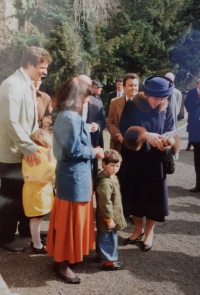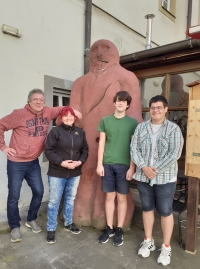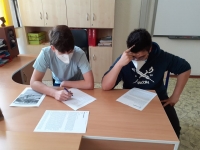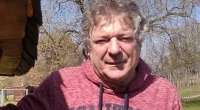"You basically saved the castle and it didn't get demolish it because of you. Or why didn't it demolish it?" - "It's quite complicated. Not because of us, but a lot of people were involved, it's not the work of a single person. It's always that there are more people when you do something, because you can't do much yourself. But it happened under strange circumstances. Because I came there in 1984 and received a contract from conservationists only for a year before it was demolished, so then it was another year from 1985 to 1986. And then the ideological secretary of the KNV KSČ from the region began to come to us. He always came, he let the driver sit in the car, he came to have coffee with us. He said, 'I'm so nice to you.' So I didn't talk about politics, because it was very thin ice, and he always came to us for coffee to rest, and now the district communists, they were in Most and the regional ones, they were in Ústí, so the district was actually fighting against the region. That was all, it was like a coincidence of everything. He came to us, this guy named Šenkýř, and said, 'Then I have it on the table, my signature is enough.' And now the problem is that if you demolished the Lake, the largest layer of coal there would be right at that foot, the coal is the most, so the more they dare, the more they get to the coal. Then there was the minor option that the Jezeří would be demolished and that it would be dredged in. And so in that year 1987 the Šenkýř said what we would do with it. Led by Rudolf Hegenbart, it was such a gray eminence, and there were some Czech ministers, but they were there as if in number, they were such elders, and the Hegenbart, he was deciding there, and then I pulled him out on the terrace, because I understood that [I hope you are recording it]. And the Hegenbart, whose full name was Rudolf Hegenbart, came out on the terrace and suddenly, as if he was enlightened, he said: ´I will not allow this get ruined."












